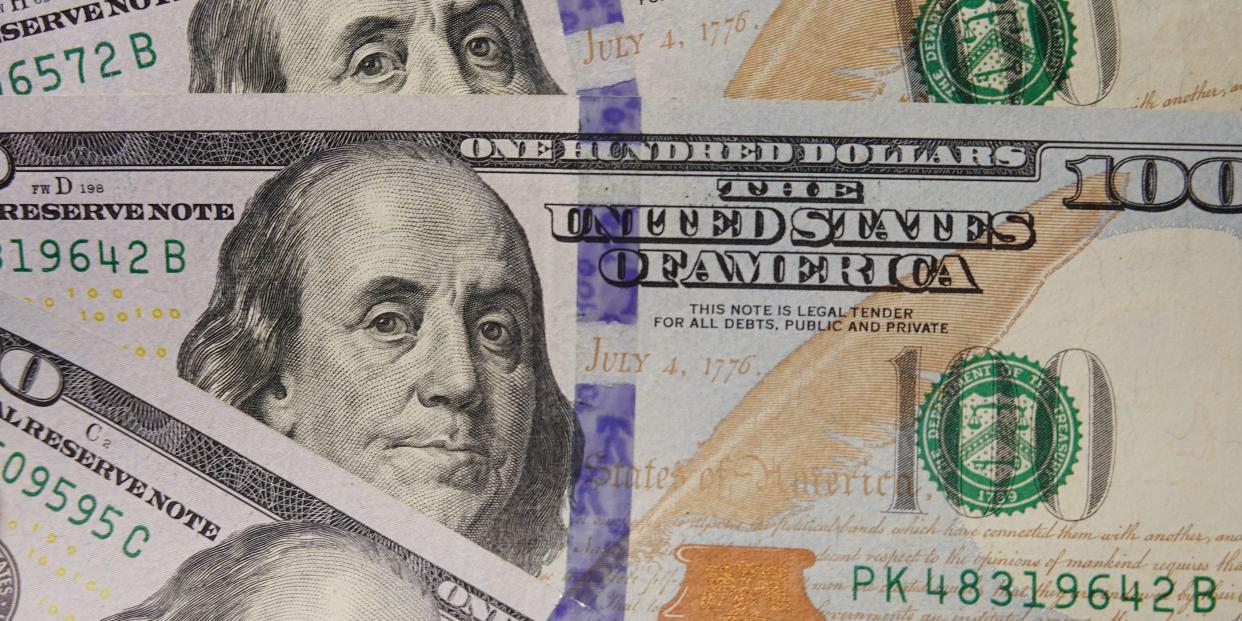The dollar's demise has been over-exaggerated

The US dollar's share of global reserves actually grew modestly in 2023, ING Bank reported.
Meanwhile, gold's share of reserves didn't shift through the year, despite increased buying.
The Chinese yuan declined among central bank holdings, driven down by Russian selling.
A global divorce with the dollar didn't take place last year, despite warnings that central banks were shedding their greenback reserves, ING wrote on Wednesday.
When adjusting for revaluation effects in IMF COFER data — which tracks the currency composition of foreign reserve assets — the dollar actually saw modest upside in its share of these holdings.
"If we treat the entire historical data set as if the global exchange rates were fixed at their end-2023 levels, it turns out that the share of the US dollar in allocated reserves gained 0.2ppt to 58.4% last year, which is a modest but first annual increase since 2015," chief economist Dmitry Dolgin wrote. "In addition, USD holdings gained $227bn in physical terms."
This punches a hole in the idea that central banks have grown insecure about their dollar exposure, having watching Russia's greenback holdings sanctioned after its 2022 invasion of Ukraine.
Analysts have also pointed out a central bank massive appetite for gold as further evidence of de-dollarization, but ING found that such demand has held steady for about a decade. Instead, last year's buying was more of a catch up to currency holdings.
"Looking at the IMF IFS data, we see few signs that gold is significantly more popular than the fiat currencies," Dolgin said. "Although the headline share of gold increased from 14.4% to 15.9% of total international reserves over 2023, this entire increase was due to revaluation effect. Assuming a fixed gold price of end-2023, the share of gold didn't change over 2023."
Meanwhile, the Chinese yuan saw its share of reserves decline, though that's largely on account of Russian activity. Before 2022, Moscow held a third of global yuan reserves, but was forced to sell when faced with a budget deficit.
The "yuanization" of global reserves has likely slowed outside of Russia as well, Dolgin said.
This currency has often been pitted against the greenback as an up-and-coming challenger, and ING acknowledged that broad yuanisation remains on the agenda for Beijing.
Reserves aside, the tender has made gains in international finance last year, with its share of global payments surging on the SWIFT financial system. But this may prove temporary, as the role of yuan in trade finance has already begun moderating into 2024:
"It has yet to be seen if that represents a reversal in the trend and what stands behind it, but the picture here seems to correlate somewhat with the rapid growth in Russia-China trade in 2022-23 and some signs of delays in Russia-related transactions by the Chinese banks reported in the beginning of this year," ING said.
Read the original article on Business Insider
